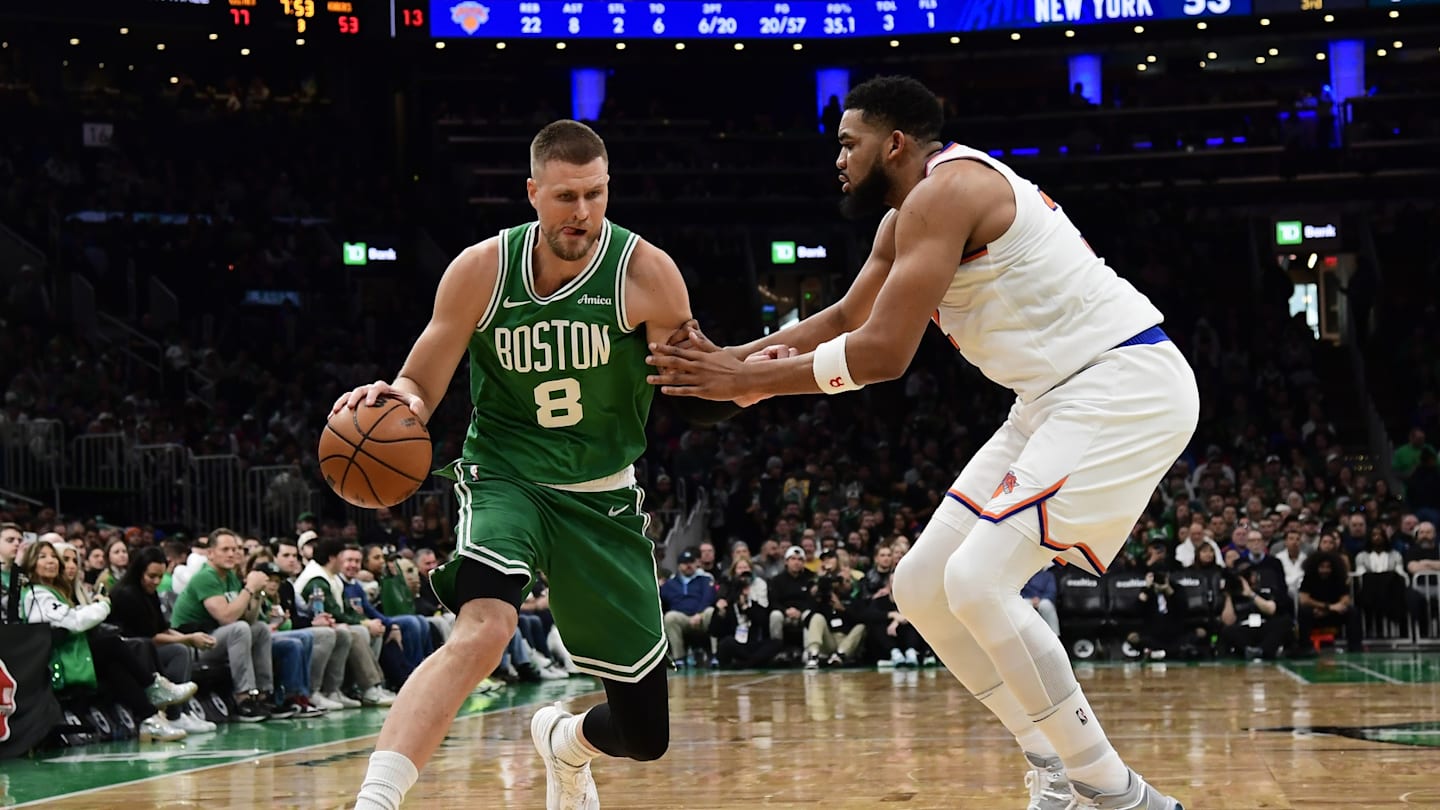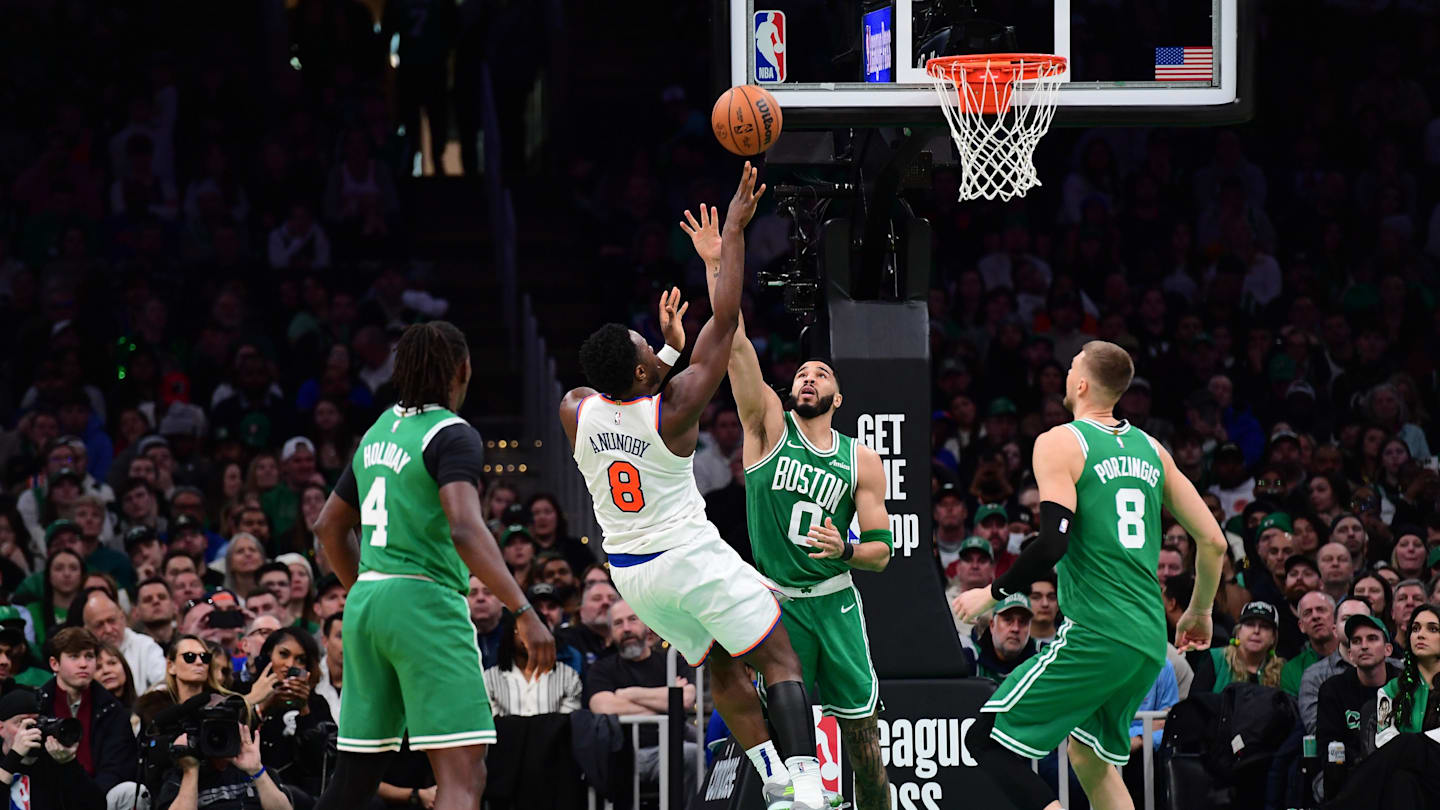What Happened to the NBA’s Prestige Teams?

The Portland Trail Blazers face LeBron James and the Los Angeles Lakers tonight at 7:30 PM in a game that once upon a time would have been circled red on any Portland fan’s calendar. Even with (arguably) the best player in the history of the game taking the floor and “Los Angeles” in purple and gold on the opposing uniforms, chances are this is just another Thursday night for Blazers fans. Why? What happened to the days when the Lakers and a few other select teams were a Big Deal for everyone?
That’s the subject of today’s Blazer’s Edge Mailbag.
Dear Dave,
I’m an old school guy. I remember when Clyde and Terry and Bill and Maurice took on the Lakers in huge battles that we all talked about for days. I know we aren’t as good anymore and that’s why there’s no rivalry. I really miss it. I hope it comes back again someday for us. But I don’t see many glamor teams across the NBA anymore. I think even if we get good again it’ll never be as special as it was. So my question is what happened to change it? Are today’s stars just not as big as the old timers were?
I’m Also Dave
The environment has changed more than the players. Today’s players are more skilled and fit than any generation prior. The NBA holds more stars than ever. In a way, that proficiency—and your access to it—is contributing to the trend you’re noticing.
As you know, back in the day most people watched NBA basketball on television networks, over-the-air or cable. Even when multiple games ran in a day, they’d be shown one at a time. Most everyone in the country—save a select few who owned season tickets or purchased local packages from their own team—would be watching the same games each week: whatever the networks chose to broadcast. Those telecasts were the NBA.
To maximize ratings, networks would show the shiniest stars and the most glitzy teams. This would inevitably include the Lakers, the New York Knicks, the Boston Celtics, the Chicago Bulls, and a couple other teams that happened to be doing well in that era. Those cornerstone teams—particularly L.A.—became de facto celebrities. Having them come to town was the same as your favorite actor doing so. You saw them on TV every week and now they’re here! Beating them was correspondingly special.
The landscape has changed entirely in 2025. Network games of the week are an afterthought. Anyone who’s serious about watching the NBA gets League Pass. Passionate fans follow their own teams 82 games a season for less than the price of a single good ticket to see them live.
We’re not centralized anymore. We’re not united in our viewing experience. The Lakers come to down as one of 29 opponents we’ll see over the course of the year, perhaps a little bit more famous, but only incrementally above the Cleveland Cavaliers and Dallas Mavericks, not a whole order removed. Even if they were the best team in the league, there’s another game in 48 hours. Another opponent will take their place soon enough.
Wide distribution of game broadcasts and correspondingly balkanized viewership are the two biggest reasons we don’t have “special” teams in the NBA anymore. That alone would provide sufficient answer, but other, lesser, reasons conspire against it too.
Parity is the new buzzword across the league. The goal is for every fan base to feel like they have a legitimate chance at success, making it easier to buy into the brand and the sport. Accordingly, each fan base should at least have a star or two to hang their hats on, a reason to buy broadcasts and jerseys. Restrictive defensive rules have helped create high scorers across the league for just this purpose. Averaging 20 per game used to be a feat, one of the signs of stardom. Now it’s less a question of whether any of your team’s players will score 20 but which two will this season. Even if your franchise has no chance at a title, boy, Player X and Player Y are pretty good.
This isn’t unique. The sporting world has followed the rest of the world onto the flat-curve, participatory bandwagon. Reality TV has made stars out of non-actors. Stick a microphone in front of Joe Drywaller from Jersey and he has a chance at being a podcast king. Gone are the days when Hulk Hogan stood in for all of us facing Earthquake and Andre the Giant because we knew we’d be smooshed flat by those behemoths if we stepped in the ring. Now random rappers, football players, and jackass veterans are throwing hurricanranas and winning matches seemingly on the spur of the moment.
We don’t want unapproachable talent on a pedestal nowadays. We want an experience we can all participate in. Even if we, ourselves, could never put on an NBA uniform, our team is as good as your team, darn it, and our fan experience will be as exalted as yours. You ain’t got nothing special in Los Angeles compared to Milwaukee or Portland…not that special anyway. If we manipulated the salary cap right and hit enough threes, we can succeed big too.
And speaking of threes, teams used to have far more personality than they do now, as a largely homogenous style of play has overtaken the league. The Lakers were Showtime. The Pistons were Bad Boys and the Knicks would physically grind you down on defense. Even the relatively-more-muted Spurs and Warriors dynasties had their own distinct styles of play. You’d have a hard time naming a truly unique team in 2025. If you did, they’re probably not succeeding compared to the franchise that’s hurling triples at the net non-stop. The uniforms change night to night, but the game doesn’t as much. Fewer distinct matchups also means fewer special ones.
We mentioned league rules above. Enforcement has changed as well. With every play televised and scrutinized, reffing has become much more egalitarian. If officials favor a certain team, protecting them on their way to elevated status, somebody is going to notice it, create a statistical analysis, punctuate it with highlighted video examples, and post it for all to see.
With apologies to the late David Stern and company, once upon a time it was far easier for the league to boost superteams. How intentionally and widely this was done is up to debate, but it worked at least on a subtextual, foundation level.
Imagine Shaquille O’Neal suiting up against Johnny McCenter. It’s the fourth quarter and the game is tight. A whistle blows. Shaq is called for an offensive foul, his fifth total. It results in a turnover and the coach having to pull Shaq for the next four minutes. That call is going to be scrutinized, dissected, debated, and criticized everywhere from the water cooler to league offices. Seven replays on the national broadcast, a five-minute debate in the booth, talk radio fights for the next three days…right or wrong, the ref is never going to hear the end of it. He’s in for a long week.
Now imagine the same play, the same referee, but the call goes the other direction, against Johnny McCenter. “Ain’t Shaq great?” says the play-by-play broadcaster. “Yeah. He’s a dominant force,” says the color analyst. And play goes on without a further word.
With a feedback loop like that, which way do you suppose most of those calls were going to go?
Stars were supported in that classic environment far more than they are today. And since the stars in question largely played for prestige franchises, those teams found it easier to cement their position on top generationally than is possible now.
I think there’s a solid argument to be made that today’s way is better. I’m certainly in no hurry to return to the reffing practices of 30 years ago. Maybe it’s ok that we all have stars to hang our fandom on too. But marquee teams, “special” nights, and exclusive celebrity superstars have become inevitable casualties of that evolution. The world has changed. We’re just going to have to change along with it. If that means that Thursday night against LeBron feels not much different than Saturday night against Donovan Mitchell, that’s just the way it goes.
Thanks for the question! You all can send yours to blazersub@gmail.com and we’ll try to answer as many as possible!
Related
NBA: Mark Cuban says he would have asked for more…
Feb 13, 2025; Dallas, Texas, USA; Mark Cuban laughs during the second half of the game between the Dallas Mavericks and Miami Heat at American Airlines
NBA Scout Reveals Why Celtics Can Easily Beats Knicks in…
The Boston Celtics are one of the teams who are expected to be a contender at the end of the season. They are the defending NBA champions, so they feel like the
Nikola Jokić gives peak Nikola Jokić interview with Scott Van…
Nikola Jokić is still rewriting the record books — and treating it like just another day at the office. In a 149-141 overtime win over the Phoenix Suns
Knicks’ Struggles vs. NBA’s Elite Explained
The New York Knicks are one of the best teams in the NBA, but as of late, they have been defined more by their struggles than their triumphs.The Knicks are 0-7











